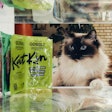
In 2018, lawmakers in Ohio introduced a bill to prohibit the remains of any dog or cat from being used in pet food, along with the remains of any animal euthanized using drugs like pentobarbital, reported Fox 8. Although that bill was never passed, its provisions were added to Ohio Senate Bill 164 this year. Earlier this month, that bill passed the state legislature and headed to Ohio’s governor for signature. The bill also increased the maximum punishment possible for acts of cruelty to animals and pet abandonment. Legislators noted the well documented link between hurting animals and harming people.
The provisions against using dogs and cats in pet food may have been unnecessary. Earlier reporting by Petfood Industry covered this topic.
“Dogs and cats from shelters or anywhere else are not rendered into animal food in the US,” said Jessica Meisinger, PhD, director of education, science and communication for the North American Renderers Association and Fats and Proteins Research Foundation, told Petfood Industry in 2018.
Regulators would consider the presence of pentobarbitol or any other similar drug to be adulteration regardless of the source. Federal regulations already prohibit pentobarbital and similar chemicals in pet foods at any concentration. The Federal Food, Drug and Cosmetic Act (FFDCA) makes the need to ban euthanized animals redundant. FFDCA requires that both human and animal foods be safe to eat, produced under sanitary conditions and labeled truthfully. The Act also requires that those foods not contain any harmful substances, including pentobarbital or other euthanasia drugs.
In 2018, former representative Laura Lanese, a Republican, introduced the bill to the Ohio State Legislature. Lanese introduced the bill after seeing a story on Cleveland-based Fox 8 in early February. That story covered how another piece of Ohio legislation allows for dead or euthanized animals to be used as raw materials for rendering plants. An attorney quoted in the article claimed that this could include dogs and cats from animal shelters. However, an Ohio Department of Agriculture representative stated that their testing had not revealed the presence of dogs and cats in pet food.
Other media outlets have reported that pet foods may contain euthanized cats and dogs, despite no evidence of this as well as federal regulations prohibiting it. For example, Newsweek stated that, “the body of a stray dog killed in a shelter may be ground up into dog food.”
Consumer focus on pentobarbital in pet food
In 2018, lawmakers’ concerns came after numerous pet food products were recalled after testing found pentobarbital in dog or cat foods.
In March 2018, the United States Food and Drug Administration informed J.M. Smucker that the company’s February withdrawal of pet food products, including Kibbles ‘N Bits, Ol' Roy and Skippy, from the marketplace is now considered a recall. The FDA based this decision on a test paid for by Smucker that confirmed the presence of pentobarbital in the tallow ingredient used in the affected products.
In February 2017, Evanger’s Dog and Cat Food of Wheeling, Illinois, USA recalled specific lots of its Hunk of Beef product because of potential contamination with pentobarbital, then expanded that recall in March. Party Animal recalled dog food in April 2017 for the same reason.















